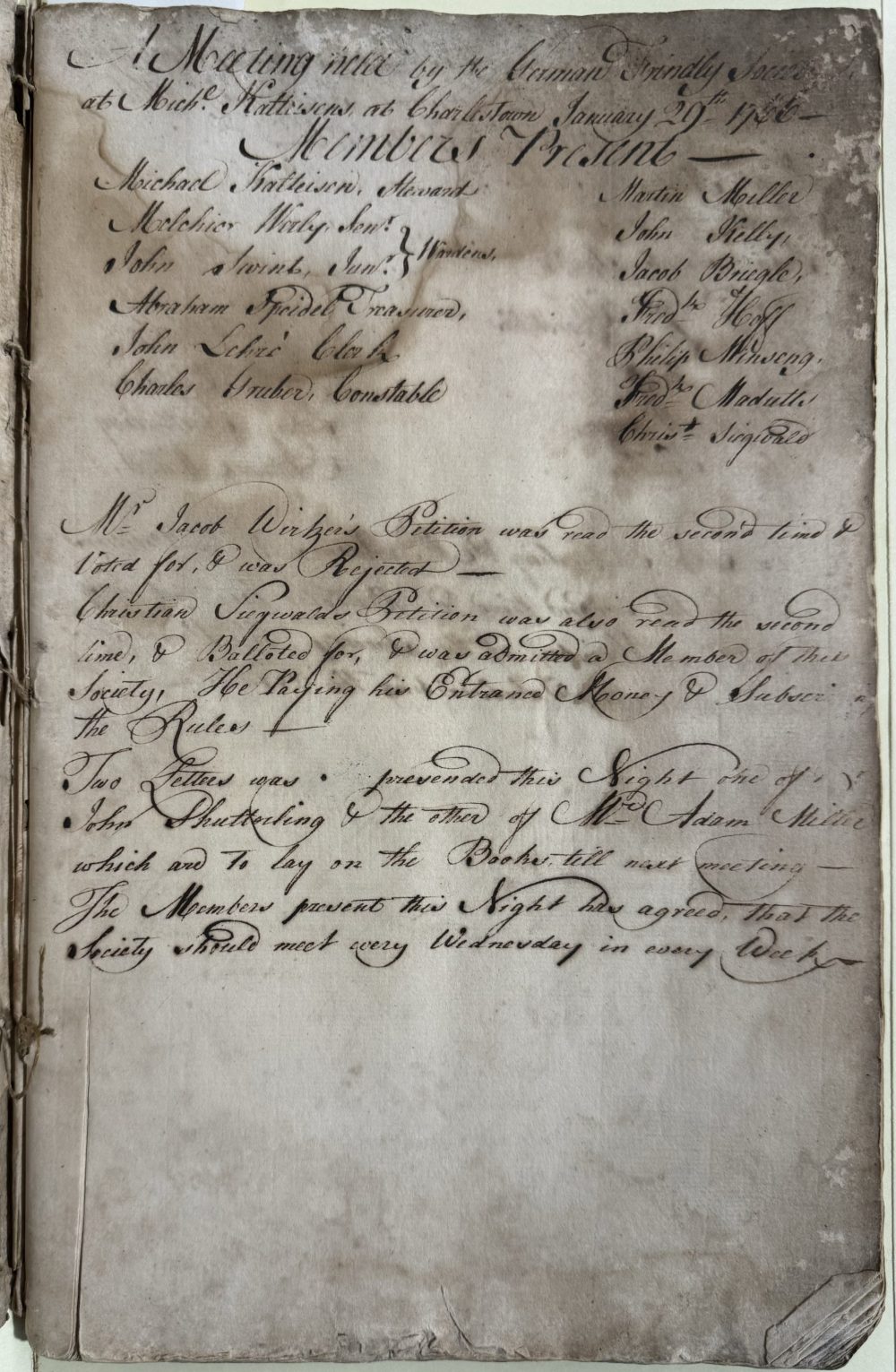
Record of the first meeting of the German Friendly Society from the collections of the South Carolina Historical Society.
On January 15, 1766, Michael Kalteisen held a meeting in his home in Charleston with Daniel Strobel and fourteen other German men. This constituted the founding and first official meeting of the German Friendly Society. Since the beginning of European settlement in South Carolina, German people have been a constant. German-speaking immigrants settled on James Island in 1674, west of the Ashley River at Albemarle Point. They also settled in many other South Carolina Townships, including Orangeburg, Purrysburg, and Saxe-Gotha. However, Charleston hosted the most prominent group of German-speaking immigrants. In Charleston, they established a dynamic and successful community of artisans and merchants well before the Revolutionary War. In 1759, St. John’s Lutheran Church was founded and seven years later in 1766, the German Friendly Society followed. The German community was known as Dutchtown (from Deutsch or German) and was its own separate entity within the city. At the dawn of the Revolution, the Germans of Charleston were influential in both political and military activity. Like other communities in South Carolina, support for the Patriot and Loyalist causes caused a split in the community. Most established Germans sided with the Patriots while new immigrants to the Dutch (Deutsch) Fork area of the backcountry supported the Loyalists. In 1775, the first German military company in the United States was formed from the German community in Charleston. Known as the German Fusiliers, they distinguished themselves at the Battle of Savannah.
The German Friendly Society is the oldest of all German men’s social organizations in Charleston. Founded in January of 1766, the society served as a social and mutual-assistance organization to pay sick and death benefits to members. It also allowed members to borrow funds at low rates of interest. In 1801 the society constructed its own meetinghouse on Archdale Street in Charleston. In 1803, the society opened a school for boys. During the War of 1812 the German Friendly Society members assisted the German Fusiliers in building and maintaining Charleston’s fortifications. German immigration to South Carolina slowed significantly between 1790 and 1830 resulting in a decline in German language and culture. The Dutch Fork area was one exception to this decline. In this area of the backcountry, German culture and language extended into the early 20th century. Charleston was the other exception to this decline as local German organizations formed a solid foundation for the community. During this time, immigration of German Jews to Charleston was low and they were not extended invitations to join the German organizations.
The Civil War brought a stagnation in German immigration to Charleston and the German Friendly Society evolved into a more social and charitable organization. According to sources, the modern version of the society has limited its membership to 200 members and there is an extensive waiting list to join. To learn more about the German Friendly Society, visit the South Carolina Historical Society Archives where its records are kept for research purposes.